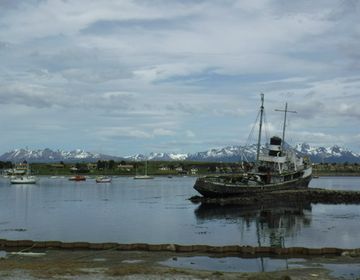Looking Back: Tips for Pre-Departure
Hello!
I’m finishing up my semester in Buenos Aires as I type, and as I was looking back I thought of a few things that could’ve been helpful to know as I was preparing to go.
An important thing to keep in mind while reading this list is that, as I’ve found out over the last four months, culture shock is all about expectations. It’s thinking that a normal dinner is 6 or 6:30 and then being taken aback that you’re not eating until 10.
It’s asking yourself “why do people in this country not sleep?” when the conference you’re at wraps up for the night at 1:30 am and breakfast is at 8, and you’ve seen similar patterns in other situations.
My best suggestion for managing culture shock is to expect the unexpected. Realizing ahead of time that things—maybe everything—is going to be at least slightly different gives you the ability to go into a situation curiously, observantly.
In observing you can realize “this is how they seem to do this here”. From there you get to decide how you’re going to react to said behavior, whether it’s participate or respectfully abstain. Going to a boliche at 02:30, for example.
Anyways. That’s a lot of prologue for what was supposed to be a numbered list. Let’s get to it.
1. Leaving the U.S. from your parents’ or guardians’ house is a good idea, if possible. I spent the summer in my college town, which meant that my parents couldn’t bring me my forgotten sandals/headphone adapter/writing idea notebook when they came to visit.
2. Buenos Aires winter was colder than I expected. I grew up in Michigan, so I’m very used to chilly temperatures. But the frío here is more humid, and my rain jacket did not suffice (but layering, as always, was a good idea). Bringing a hat or gloves would’ve helped as well.
3. Breakfast here does tend to be pretty small. Do with that what you will, but several times my host mom had just a cup of coffee and one piece of toast for breakfast (and the toast size that she buys is also chiquito).
4. To get the colectivo to stop for you, you’ll likely have to stand almost in the middle of the street waving your arm in wide sweeps. And then there’s still a possibility that they’ll drive on without you. And that they might do that even having plenty of room.
5. The Museo de Bellas Artes is phenomenal. They have five Degas, a Van Gogh, Renoir, two Monet, a Cézanne, and several Rodins. Amazingly, it’s free admission.
6. Bring your own hot sauce if you like spicy food. My friend Lucy, a lover of spiciness, found out that even the hot sauce here isn’t hot.
7. Prepare yourself mentally for the fact that a lot of paper towels here fall apart as soon as you start drying your hands. There’s not really anything you can do about that, but it eases the frustration if you’re expecting it.
8. At restaurants, if you ask for your food to go, they generally take it to the back to box it up. That can take a minute, so if they disappear with your dish and don’t come back for a while, don’t worry.
9. There isn’t always toilet paper in the bathroom; sometimes it’s outside the restroom but you need to pay for it. (It’s never very expensive, maximum 50 pesos.) It’s a good idea to have tissues always on hand. Also, 94% of the time you’ll need to throw your TP in the trash can, not the toilet. You have been warned.
10. Lastly, a linguistic tip: you really only use the “usted” when speaking with someone quite obviously older than you (my host mom’s rule of thumb is if they have white hair) or quite obviously higher up in the business hierarchy. For me, it was so nice just to use “vos” all the time and not have to worry about an inadvertent insult.
I hope these tips were helpful, and that you enjoy your time in Buenos Aires!
Related Posts
Top 5 Spanish Study Abroad Programs for the Summer
Summer school hasn’t always sounded the most appealing. But you’re probably thinking about it the old way: Stuck in a boring classroom while wishing you were doing anything else. Think... keep reading
Traveling to Patagonia While Abroad in Buenos Aires
By: Liliana Micera Studying abroad in Buenos Aires has been incredible, but once my classes ended I fled the city for the nature of Argentina’s south. I cannot recommend traveling... keep reading
Portuguese vs. Spanish Language: Key Differences & Similarities
Olá! ¡Hola! Torn between learning Portuguese vs. Spanish while studying abroad? You're not alone. These two languages are like siblings – similar in some ways, totally different in others. Whether... keep reading






